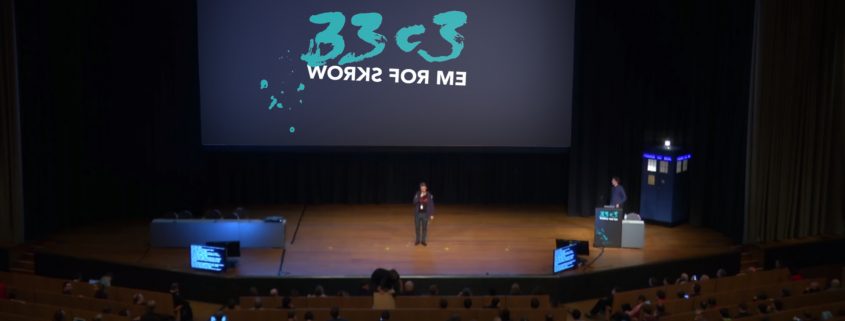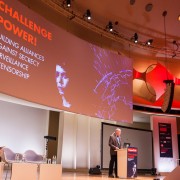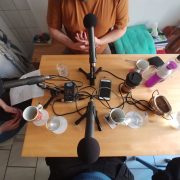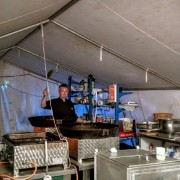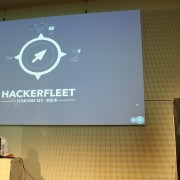33c3 – Coordination of Stagemanagers and Moderators
Background
After I’ve been responsible for several years at various events for the stage management and the moderators, we have again gathered the moderation team of the CCC events to prepare this year’s Congress.
At last years Congress, we introduced a new angel type, the stage manager. So far, there have been so-called Heralds at the CCC events. The Heralds were stage managers and moderators in one, they fulfilled both tasks at the same time. During the 30c3 and the 31c3, unfortunately, we had to realize that not all heralds were able to cope with this requirement and either the moderation or the communication with the trades in the hall suffered, so we introduced the stage manger for the 32c3.
For the 33c3 we have continued this structure and learned a lot about it. There is no paid staff on CCC events. All activities around the event are carried out by volunteers, the so-called “angels”.
Planning Phase
Already at the end of october we released the “Call for Heralds” on the official event blog. We received about 100 applications from volunteers, all of them were managed by a ticket system. All 100 applicants were asked to do a video interview, during which we threw the potential moderators in cold water and asked the person to improvise an introduction for a (known) speaker.
Then we confronted our potential moderators with a hypothetical crisis situation, for example, that the speaker is 10 minutes late or that the speaker stumbles on the way to the stage and breaks his nose. For these hypothetical scenarios, a solution was then to be found, it was especially important to us that the potential herald took care of the entertainment of the audience until the incident was resolved.
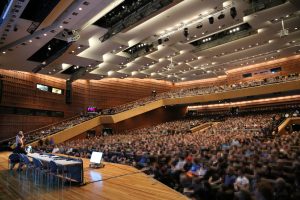
Saal 1 in CCH, Bild: Wikipedia / Tobias Klenze / CC-BY-SA 4.0
We wanted each herald to have about 2-4 hours of duty, so we divided the event program of about 150 lectures into about 50 blocks. After the interview we gave each of the potential heralds a score in points and sorted the long list with our impressions by that score. Now all heralds were sent the list of blocks, and were allowed to name one or more preference blocks, which we tried to take into account when assigning the individual shifts.
Event
On the day before the event, we met in Hamburg and conducted the multi-hour introductory event for all heralds and stage managers. The heralds were prepared by us during the interviews, but the stage managers had never done this before. Altogether, we had about 80 stage managers and 41 heralds, who carried out the 150 lectures professionally and made sure that every talk began and ended on time. They also ensured that every talk had a good introduction and some moderation after the talk was done. During the entire event, the stage managers were the central point for information in the hall and ensured that all trades were on time and that they received all necessary informations on time.
Although Lindworm and I were already pretty busy with the coordination of the heralds and stage managers, we also moderated some talks and had a lot of fun on stage. Especially in the area of crowd control, that is, the efficient emptying and filling of the halls between the talks, we often had to help, so that also free seats in the middle of a row could be occupied before the talk starts.


